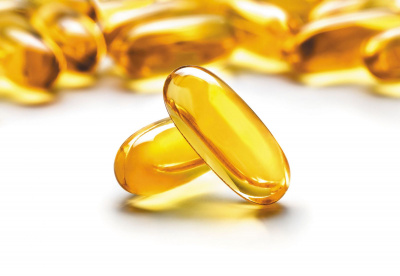Omega-3 fatty acids are essential fats that you must get from your diet.
These incredibly healthy fats have important benefits for your body and brain.
However, most people who eat a standard Western diet are not eating nearly enough omega-3 fats.
There are many fatty acids that belong to the omega-3 family. The most important ones are EPA, DHA, and ALA.
EPA (eicosapentaenoic acid)
EPA is a 20-carbon-long omega-3 fatty acid. It’s primarily found in fatty fish, seafood, and fish oil.
This fatty acid has many essential functions. Most importantly, it’s used to form signaling molecules called eicosanoids. These can reduce inflammation.
EPA has been shown to be particularly effective against certain mental conditions, especially depression.
DHA (docosahexaenoic acid)
DHA is a 22-carbon-long omega-3 fatty acid. It is primarily found in fatty fish, seafood, fish oils, and algae.
The main role of DHA is to serve as a structural component in cell membranes, particularly in nerve cells in your brain and eyes. It makes up about 40% of polyunsaturated fats in your brain.
DHA is very important during pregnancy and breastfeeding. It’s absolutely crucial for the development of the nervous system. Breast milk may contain significant amounts of DHA, depending on the mother’s intake.
ALA (alpha-linolenic acid)
ALA is an 18-carbon-long omega-3 fatty acid. It’s the most common dietary omega-3 fatty acid, found in certain high-fat plant foods, especially flax seeds, chia seeds and walnuts. Aside from being used for energy, ALA doesn’t have many biological functions. Nevertheless, it’s categorized as an essential fatty acid. This is because your body can convert it into EPA and DHA, omega-3 fatty acids with various essential, biological functions.
However, this process is highly inefficient in humans. According to one estimate, only about 5% of ALA gets converted into EPA, and as little as 0.5% into DHA.
For this reason, ALA should never be relied on as your sole omega-3 source. Most of the ALA you eat will simply be used for energy.
Omega-3 fatty acids are among the world’s most comprehensively studied nutrients. They have been shown to have powerful health benefits on the following conditions:
Blood triglycerides. Omega-3 supplements can significantly lower blood triglycerides.
Cancer. Eating foods high in omega-3 has been linked to a reduced risk of colon, prostate, and breast cancers. Still, not all studies agree.
Fatty liver. Taking omega-3 fatty acid supplements can help get rid of excess fat.
Depression and anxiety. Taking omega-3 supplements, such as fish oil, can help reduce symptoms of depression and anxiety.
Inflammation and pain. Omega-3s can reduce inflammation and symptoms of various autoimmune diseases, such as rheumatoid arthritis. They’re also effective at reducing menstrual pain.
ADHD. In children with ADHD, omega-3 supplements can significantly improve various symptoms.
Asthma. Omega-3s may help prevent asthma in children and young adults.
Baby development. DHA taken during pregnancy and breastfeeding can improve your baby’s intelligence and eye health.
Dementia. Some studies link a higher omega-3 intake to a reduced risk of Alzheimer’s disease and dementia.
Given that endometriosis is often associated with increased pain and inflammation, having a high ratio of omega-3 to omega-6 fats in the diet may be especially beneficial for women with this disease.
What’s more, a high ratio of omega-3 to omega-6 fats has been shown to inhibit the survival of endometrial cells in test-tube studies. Preliminary evidence suggests that omega-3 fats might help discourage the implantation of endometrial cells in the first place.
Furthermore, one observational study found that women who consumed the highest amounts of omega-3 fats were 22% less likely to have endometriosis, compared to women who consumed the lowest amounts.
Lastly, researchers have found that taking fish oil supplements containing omega-3 fats may significantly decrease menstrual symptoms and pain.
However, the evidence is inconclusive. Other observational studies have found no association between fat intake and the risk of endometriosis.
Nevertheless, whether you eat more fatty fish or take omega-3 supplements, increasing your intake of these fats is one of the simplest dietary changes you can make to fight endometriosis-associated pain and inflammation.

